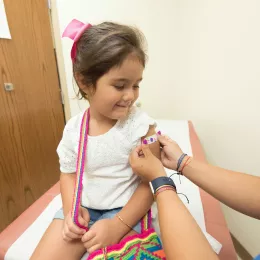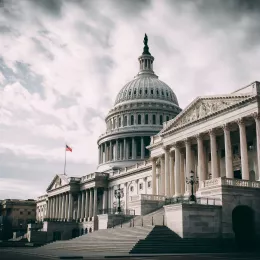COVID-19 is an occupational illness
Beyond the curve: Dr. Peter Lurie's COVID-19 blog
See all Beyond the Curve posts
Back in the day, when I was medical resident leading the doctor’s union at San Francisco General Hospital, we understood the risk that HIV, the pandemic virus of that time, represented to health care workers. A risky needlestick and you’d be taking antiviral drugs for a month, followed by an anxious 6 months waiting to hear if you’d been infected. The activism of unions and workers across the nation culminated in the Occupational Safety and Health Administration’s Bloodborne Pathogen Standard, promulgated in 1991 (revised by statute in 2000).
Flash forward to today when the Centers for Disease Control and Prevention estimates that 11% of all coronavirus infections in the US are among health-care workers, the very folks putting their lives on the line for us all on a daily basis. As of April 9, at least 27 health-care workers had died of the virus.
And it’s not just health-care workers. Meatpacking facilities are emerging as COVID-19 epicenters in some communities. One investigation suggests there have already been about 4,400 infected workers tied to 74 meatpacking plants in 25 states, including at least 18 reported worker deaths.
This should surprise no one, given the history of workplace abuses in a sector prioritizing profits over worker health. Workers report that despite public health guidance regarding social distancing and face covering, weeks into the pandemic (and even after cases were detected among employees) workers continued to work practically should-to-shoulder with one another, often without masks and other personal protective equipment.
President Trump’s executive order on Tuesday keeping meat plants open during the COVID-19 pandemic is a clear indication that these risks will continue to be borne by workers. The order would eliminate any incentive that companies take steps to protect the workforce: providing personal protective equipment, installing dividers, and offering paid sick leave. It is no small irony that meatpackers’ failure to provide these protections is what led to the plant closures in the first place. By invoking the Defense Production Act, the order would deny workers their day in court even if they get sick as a result of employer negligence.
While many Americans hold jobs that allow us to shelter in place, Zooming and Skyping and Microsoft Teams-ing from the comfort of our own homes, others among us, often earning low wages, go to work each day to support their families and keep our food system functioning. Our government has failed to live up to its obligation to these workers: to provide a minimum standard of protection from this virus.
OSHA has a tool precisely designed for this crisis – but is choosing not to use it. It could enact an Emergency Temporary Standard, which would establish enforceable requirements for worker protections during the pandemic. Instead, it has only issued voluntary guidances, which industry is treating as mere suggestions. An emergency standard could take some cues from the Bloodborne Pathogen Standard, the only existing OSHA standard for infectious diseases.
If OSHA won’t step up to the plate, the Congress must. Urge your representative to support the COVID-19 Every Worker Protection Act of 2020.
Contact Info: Contact us at cspinews[at]cspinet.org with questions, ideas, or suggested topics.
The Latest by Peter
Makary must stop the bleeding if confirmed to lead FDA
Government Accountability

Peter’s Memo: Goodbye Red 3, hello better labels
Advocacy

Mass layoffs at FDA will not make Americans healthier
Government Accountability

Trump administration firing of thousands of health agency employees will undermine food safety
Government Accountability

Stop the outbreaks of tomorrow by voting against Kennedy on Senate floor
Government Accountability


